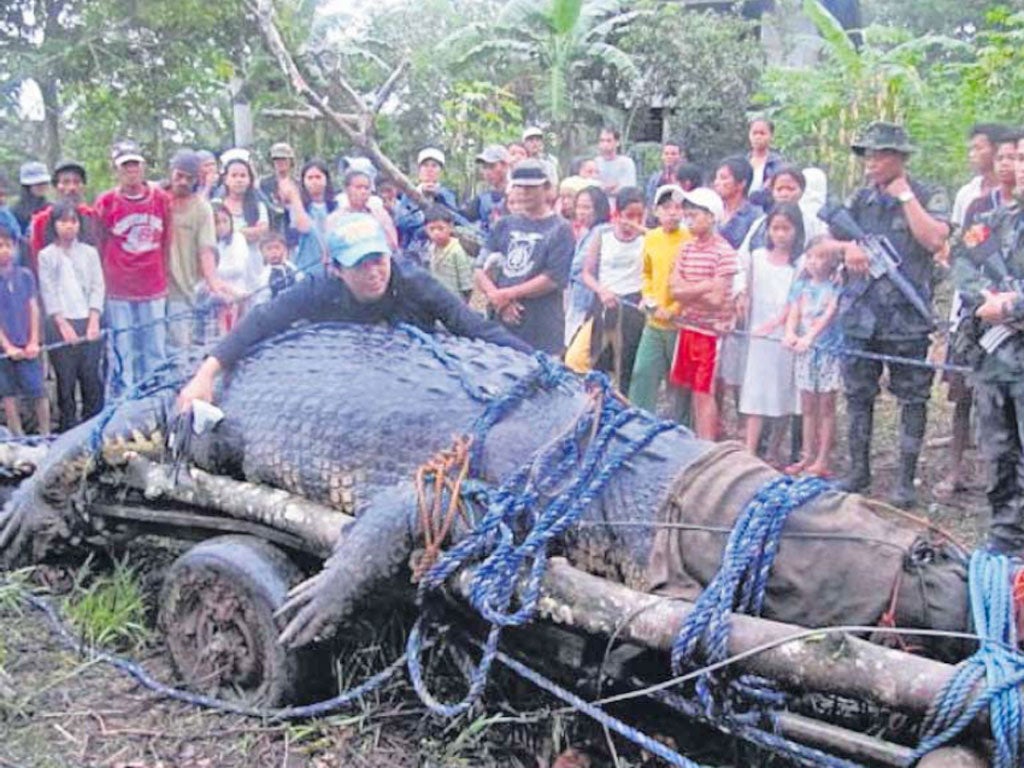Your support helps us to tell the story
From reproductive rights to climate change to Big Tech, The Independent is on the ground when the story is developing. Whether it's investigating the financials of Elon Musk's pro-Trump PAC or producing our latest documentary, 'The A Word', which shines a light on the American women fighting for reproductive rights, we know how important it is to parse out the facts from the messaging.
At such a critical moment in US history, we need reporters on the ground. Your donation allows us to keep sending journalists to speak to both sides of the story.
The Independent is trusted by Americans across the entire political spectrum. And unlike many other quality news outlets, we choose not to lock Americans out of our reporting and analysis with paywalls. We believe quality journalism should be available to everyone, paid for by those who can afford it.
Your support makes all the difference.A remote southern Philippine town has gone into mourning over the death of the world's largest saltwater crocodile in captivity, even though it was blamed for the deaths of several villagers.
Bunawan town plans to preserve the remains of the 1-ton crocodile, named Lolong, in a museum to keep tourists coming and stop the community from slipping back into obscurity, the mayor said today.
Lolong was declared dead yesterday after being found floating on its back with a bloated stomach in a pond in an ecotourism park which had begun to draw tourists, revenue and development because of the immense reptile, Mayor Edwin Cox Elorde said.
"The whole town, in fact the whole province, is mourning," Elorde said. "My phones kept ringing because people wanted to say how affected they are."
Wildlife experts will perform an autopsy to determine the cause of death, he said.
Guinness World Records had proclaimed it the largest saltwater crocodile in captivity last year, measuring the giant at 6.17 metres (20 feet 3 inches). The reptile took the top spot from an Australian crocodile that measured more than 5 metres (17 feet) and weighed nearly a ton.
Estimated at more than 50 years old, the crocodile was named after a government environmental officer who died from a heart attack after traveling to Bunawan in Agusan del Sur province to help capture the beast.
Even though Lolong was blamed for the deaths of several villagers over the years, Bunawan villagers grew to love the giant reptile because it came to symbolize the rich biodiversity of the marsh where it was captured. The vast complex of swamp forests, shallow lakes, lily-covered ponds and wetlands is home to many animals, including threatened species such as the Philippine hawk eagle.
Various religious groups offered prayers today and spiritual leaders also planned to perform a tribal funeral rite, which involves butchering chickens and pigs to thank forest spirits for the fame and other blessings the crocodile has brought, Elordie said.
The rite is to be held at the ecotourism park, where the reptile was a star attraction, drawing foreign tourists, scientists and wildlife journalists to Bunawan, a town of 37,000 people about 515 miles southeast of Manila.
The crocodile's capture in September 2011 sparked celebrations in the town. It was caught with steel cable traps during a hunt prompted by the death of a child in 2009 and the later disappearance of a fisherman. Water buffalos have also been attacked by crocodiles in the area.
About 100 people led by Elorde pulled the crocodile from a creek using ropes and then hoisted it by crane onto a truck.
Philippine officials had planned to construct a road to the park to accommodate the growing number of tourists, Elorde said.
He said Lolong will be preserved so tourists and villagers can continue to marvel at it.
"I'd like them to see the crocodile that broke a world record and put our town on the map," Elorde said.
AP

Join our commenting forum
Join thought-provoking conversations, follow other Independent readers and see their replies
0Comments